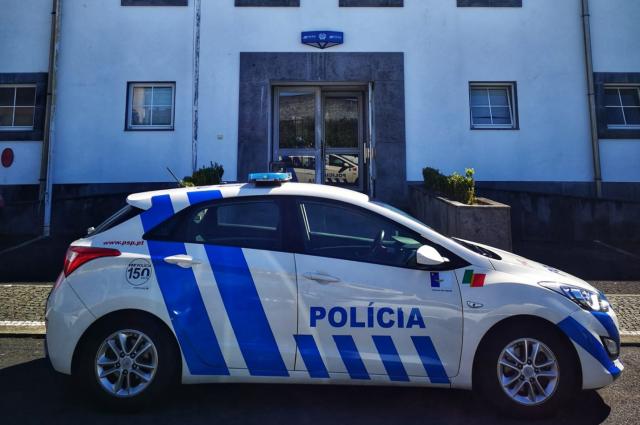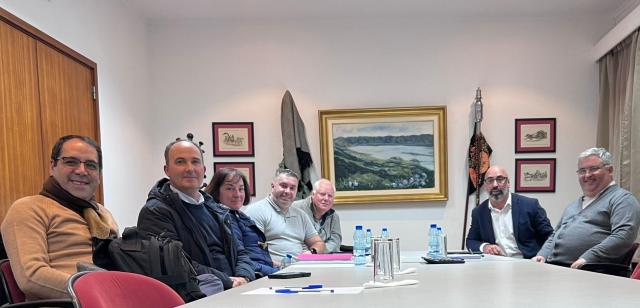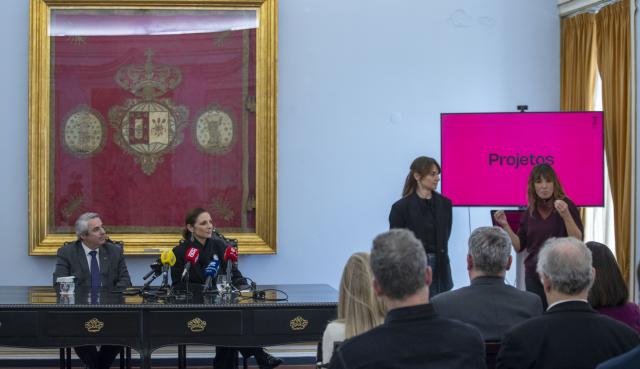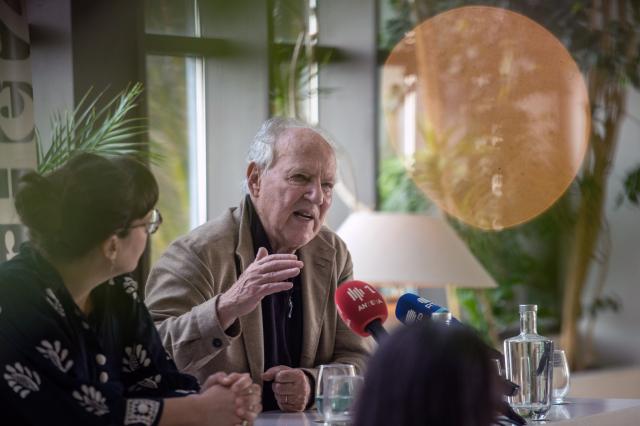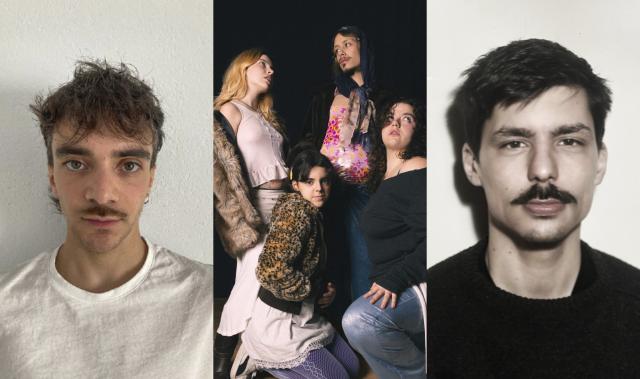How would you characterize the phase the AIR Centre is going through?
The center’s current moment is one of consolidation and expansion. We are consolidating our team, which already comprises 15 people and should comprise 20-22 by the end of the year.
We already have a technical team, an operational team and a network team. The AIR Center's network is very important since it is an international collaboration organization with partners from 15 countries. A number that will increase to 20 countries by the end of the year, as our idea is to have all the Atlantic Ocean countries comprised in the AIR Centre. Currently we have the United States, Brazil, South Africa, Angola, Namibia, Portugal, Spain, United Kingdom. We have already signed with Norway and will sign with Mexico and Colombia.
We are also developing some projects. Our idea is to involve all our Atlantic partners in these projects.
So the next phase will be to expand the projects in which they are involved?
Exactly. We have already started developing some projects which will cover two lines of action.
The first line of action covers the smaller projects: international initiatives involving two or three partners for projects from the European Space Station or the European Union, for example. These projects fall within the fields of energy, aquaculture and ecosystem monitoring. Some are already being developed in collaboration with Azorean companies because we want to highlight the Azorean component, given that our headquarters is on Terceira island, in Terinov. As the center of gravity of this organization is the Azores, we want to involve companies and partners from the archipelago, as well as from other places.
We also have flagship projects, which are larger projects and which will bring together several countries. The largest of these projects is a constellation of small satellites for monitoring the Atlantic and that could be applied to sustainability, fisheries protection, waste monitoring, plastics or fuel spills in the ocean, etc.
Another of our flagship projects is to build a global Atlantic database that can be shared with our partners.
We also want to develop another great project called "Atlantic: pole to pole, system of system" through which we will make use of sensors, marine robotics, automatic boats, drones; in sum, we will combine several systems in a control center in the Azores, in Terinov, so we can have data from the Atlantic when we need it. This data will help fighting illegal fishing and collecting garbage in the ocean, so we really want to develop this system.
All the flagship projects are already starting up and we are now contacting the countries that would like to contribute. For example, for the constellation of satellites, we already have confirmation of countries that would like to join, such as Spain, the United Kingdom, Norway, South Africa, Brazil and Mexico, in addition to Portugal.
And in terms of contacting other countries?
In parallel to the development of projects, we are undergoing dissemination work, so every Friday we do a webinar on various subjects such as aquaculture, marine archaeology or the ocean on other planets. More than 70 countries, with over 300 participants, have attended these webinars. This dissemination work is very important because it helps us keep the network active. In the last few months I was supposed to have been travelling every week in order to publicize our work, but due to the coronavirus I could not, so the way to keep the network active is through these webinars.
But we have also held meetings at the highest level, with ministers from various countries. The last meeting was supposed to take place last May in Philadelphia, Pennsylvania, but it had to be postponed because of the coronavirus. Now we are organizing a meeting that should take place in October, but we still don't know if it will be face-to-face or virtual. Most likely it will be virtual, given the situation in the United States. Keeping the network active is very important; that is why we have a network director, José Luís Moutinho.
We also have a technical director, Pedro Silva, who lives in the Azores and runs the team. And we have an operations’ director, Emir Sirage. All these people play an important role in scientific and technological diplomacy as this relationship helps to mark Portugal's position in this area.
How has the relationship with the Azores and local institutions been?
The Azores are halfway across the Atlantic, which is a great situation. The Azores islands' connection with the Atlantic is very strong so theirs is an optimal location and at this point the relationship with the Regional Government of the Azores – which supports the project – is very important since this kind of initiative needs institutional support.
When we are looking for technological solutions linked to space for Atlantic problems, we are also looking for solutions for the Azores.
In this sense, we have been meeting with the various regional secretariats to see what kind of problems we can help with. For example, in the field of agriculture, we are making a prototype for an application to identify fungi that represent a problem for farming. This application will use satellite data to identify the problem as early as possible.
We have also met with the Regional Secretariat for Energy, Environment and Tourism to analyze applications that could be useful for the Region, as well as with the Regional Secretariat for the Sea, Science and Technology, aiming at the protection of the fishing bank.
As our company is headquartered in the Azores, we intend to design all these prototypes to meet the needs of the archipelago.
The Earth Observation Laboratory (EO LAB), which belongs to the European Space Agency and is part of the Observatory Network, is also based in the Azores. In two to three years we will have data from our constellation of satellites, but currently we already have a lot of European satellite data that will serve the needs of the Azores. Earth observation satellites can do all kinds of observation, from monitoring fires and calamities to protecting coastal ecosystems. And these are the applications we want to develop with our multidisciplinary team.
Another very important technological infrastructure of the AIR Centre is the secretariat for MBON - Marine Biodiversity Observation Network. In Terinov, there are two people who make the link with an organization with more than 120 countries and which monitors the impact of climate change on the biodiversity of species at risk or of important commercial value.
In sum, at the AIR Centre we are carrying out different activities, linked to the ocean, space and climate. It is not always easy because no one can master all these skills. That is the reason why we need experts in various areas so that they can complement each other. Our idea is to have a combination of multidisciplinary knowledge as problems cannot be solved with a single technology. We always need to have a variety of methods and technologies to be able to solve problems that are increasingly complex.
As executive director of the AIR Centre, what aspect would you evaluate as successful?
I would like to leave two legacies. One would be to develop a set of solutions to everyday problems in the fields of agriculture and fisheries, for instance. That is, showing how satellites can be used to create solutions to everyday problems.
On the other hand, I would like to contribute to the development of employment. The AIR Centre should be a way to create high-tech jobs and for me it would be important if we could create 100 or 200 jobs. They won't all be jobs at the AIR Centre, since what we are looking for is to be a catalyst for projects with partners. Therefore, those jobs would be in research centers in the Azores as well as in other countries. We don't want to compete with the University of the Azores or with regional companies, we want to be the catalyst that helps projects bringing companies and universities together.
Overall, I would like to insist that the AIR Centre is a means for the Atlantic community to work in partnership and that most problems are global, so we cannot think that one country alone will find the solution to all problems. We need to be aware that problems such as garbage in the ocean or climate change are global and have no borders: they will only be solved with a collaboration of all countries. And that's where the added value of having an international organization to work with all these countries comes from, by bringing together the knowledge of all these partners. The fact that this center is located in the Azores is very interesting because we are in the center of the Atlantic, a region that has exactly the same problems as the other countries in the Atlantic.

